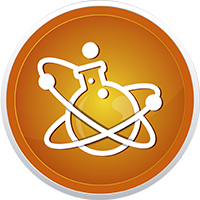Por favor, use este identificador para citar o enlazar este ítem:
http://repositorio.ikiam.edu.ec/jspui/handle/RD_IKIAM/346| Título : | An integrative approach to identify the impacts of multiple metal contamination sources on the Eastern Andean foothills of the Ecuadorian Amazonia |
| Autor : | Vellosa Capparelli, Mariana Massaine Moulatlet, Gabriel de Souza Abessa, Denis Moledo Lucas Solis, Oscar Enrique Rosero Ortíz, Bryan Rafael Galarza Naranjo, Emily Roxana Tuba Guaman, Damian Francisco Carpintero, Natalia Ochoa Herrera, Valeria Cipriani Avilab, Isabel |
| Palabras clave : | Fish farming Metals Mining Napo River; Phytotoxicity Sediments; Urban pollutionr Wate |
| Fecha de publicación : | 2020 |
| Editorial : | Elsevier BV |
| Citación : | Vellosa, M., Massaine, G., Moledo, D., & Abessa, D. S. (2019). An integrative approach to identify the impacts of multiple metal contamination sources on the Eastern Andean foothills of the Ecuadorian Amazonia Science of the Total Environment An integrative approach to identify the impacts of multiple metal contamina. (December), 0–12. doi.org/10.1016/j.scitotenv.2019.136088 |
| Citación : | PRODUCCIÓN CIENTÍFICA-ARTÍCULOS;A-IKIAM-000247 |
| Resumen : | Currently, several concerns have been raised over metal contamination in the upper Amazon basin. Rivers that flow from the high Andes to the lowland Amazon are threatened by anthropogenic activities, which may, in turn, lead to increased metal concentrations in both water and sediments. In the present study, the impacts of multiple metal contamination sources in these ecosystems were identified. The degree of metal contamination was assessed in water and sediment and seed phytotoxicity analyses were carried out in samples taken from 14 sites located in upper Napo River tributaries, combining geochemical and ecotoxicological techniques. These tributaries were chosen based on their degree of anthropogenic contamination and proximity to known sources of relevant pollution, such as small-scale gold mining (MI), urban pollution (UP), fish farming (FF) and non-functional municipal landfill areas (LF). Our results suggest that anthropogenic activities are introducing metals to the aquatic ecosystem, as some metals were up to 500 times above the maximum permissible limits for the preservation of aquatic life established by Ecuadorian and North American guidelines. Sites located close to small-scale gold mining and sanitary landfills presented 100 to 1000 times higher concentrations than sites classified as “few threats”. In water, Cd, Pb, Cu, Zn and Hg were mostly above the maximum permissible limits in the samples, while Cd in sediment reached concentrations 5-fold above the probable effect level (PEL). Phytotoxicity was associated through the diffuse contamination present in urban and landfill areas. Overall, metal concentrations and phytotoxicity assessments suggest anthropogenic effects to environmental contamination, even though natural sources cannot be disregarded. Anthropogenic effects in the eastern Andean Rivers need to be constantly monitored in order to build a complete picture on how pollution sources may affect this strategic Amazon basin area. |
| URI : | https://doi.org/10.1016/j.scitotenv.2019.136088 http://repositorio.ikiam.edu.ec/jspui/handle/RD_IKIAM/346 |
| Aparece en las colecciones: | ARTÍCULOS CIENTÍFICOS |
Ficheros en este ítem:
| Fichero | Descripción | Tamaño | Formato | |
|---|---|---|---|---|
| A-IKIAM-000247.pdf | An integrative approach to identify the impacts of multiple metal contamination sources on the Eastern Andean foothills of the Ecuadorian Amazonia | 2,41 MB | Adobe PDF |  Visualizar/Abrir |
Este ítem está sujeto a una licencia Creative Commons Licencia Creative Commons





